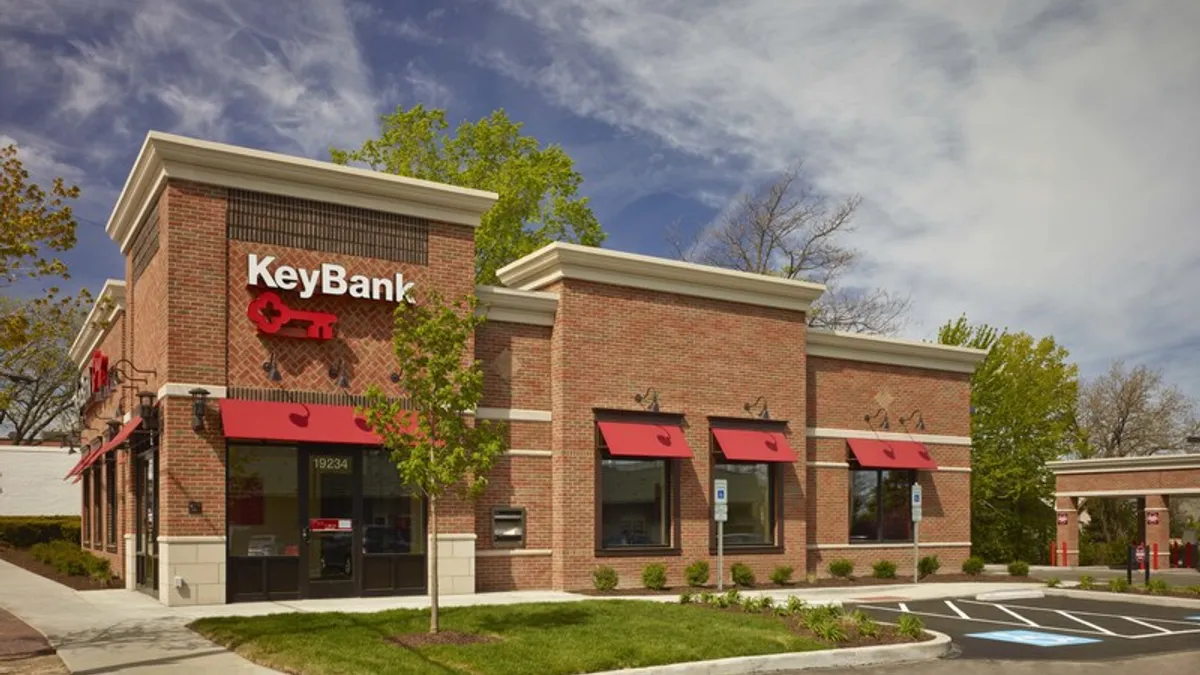As KeyBank leans on fintechs to offer innovative technology to the bank’s commercial clients, the executive overseeing those partnerships said he’s most focused on the quality of a fintech’s management team.
Ken Gavrity, who is president of Key Commercial Bank and oversees the lender’s commercial payments offerings and fintech partnerships, said the bank has yet to line up a fintech partnership this year, but generally lands one to two each year.
Finding compelling opportunities that can benefit the bank’s clients is more important than notching a certain number of tie-ups, he added.
Cleveland, Ohio-based KeyBank started partnering with fintechs about a decade ago, and has lined up about a dozen such partnerships, Gavrity said during a recent interview; the bank’s partners in recent years have included accounts payable automation software company AvidXchange, accounts receivable automation software company Billtrust and healthcare payments platform Zelis.

KeyBank typically enters into a commercial partnership with a fintech and then seeks to distribute the fintech’s solutions to the bank’s middle market customers, who generate between $10 million and $2 billion in revenue. Key, which has $188 billion in assets, often takes an equity stake in its fintech partners, although Gavrity said the bank doesn’t disclose those details.
Where fintechs were once viewed as banks’ competitors, “that tide has changed,” Gavrity asserted.
“The market has generally shifted to understanding these smaller companies struggle to be able to scale and get credibility and brand awareness,” Gavrity said. “And they generally are solving one sliver of the financial operations of the company, so they tend to do it really well.”
As the bank assesses the needs of its middle market customers, who are increasingly reviewing where they can automate, KeyBank considers whether it could build a capability itself, or is better off linking with a company already in the market solving a certain problem.
“Some of those things are going to need to be built internally at a bank like Key, but we really want best of breed,” he said. The expected length of time to get to market is a consideration, too.
Even after that analysis, however, the most important trait in a fintech partner is the quality of its management team, Gavrity contended. There’s a wealth of interesting ideas and “very slick platforms,” but a fintech team that understands potential adversity it might encounter while scaling is crucial, and hard to find, he said.
“If you don’t have that level of both experience or flexibility in thinking, you’re going to run into problems, you’re going to run into obstacles that they just don’t have the ability to solve,” Gavrity said. “There are times we find a great mousetrap, but ultimately decide this isn’t the right management team for us.”
In working together, fintechs offer next-generation technological capabilities and analytics, while the bank brings scale, trust and “a little professional maturity” to the partnership, Gavrity said.
KeyBank helps fintechs consider “fracture points” that may arise as they grow, as well as risk management and responding when something’s not working for customers. “You want to be able to distribute through our channel, you need to think through customer servicing in a very different way,” Gavrity said. Bank-fintech partnerships have faced more regulatory scrutiny of late, with customer complaints being an area of concern.
More recently, the lender has partnered with fintechs serving real estate or healthcare industries. The bank is also pushing further into embedded banking, Gavrity said, to enable software companies to plug banking services Key offers into their own platforms. KeyBank purchased banking as a service platform XUP Payments in 2021 after investing in and partnering with that fintech.
This month, KeyBank launched a virtual account management solution for treasury management clients developed through its partnership with payment platform Qolo.
Gavrity pointed to the bank’s relationships with investment firms QED Investors and Commerce Ventures as sources for partnership possibilities. “We're going to look at a whole funnel of fintechs that are trying to provide solutions in that space before we get to one that we're really interested in,” he said.
When KeyBank considers an acquisition of a fintech, as it did with XUP, the bank is also assessing its own ability to integrate that company, and whether leaders on both sides can facilitate that, Gavrity said. That acquisition resulted in the lender recognizing goodwill of $20 million, according to KeyBank’s 2022 annual filing with the Securities and Exchange Commission.
Merger and acquisition activity is expected to pick up this year as fintechs – starved for venture capital and pressured to deliver profits – reach the end of their runway. For KeyBank, though, market timing is less of a concern than quality of the fintech’s solution, Gavrity said.
“We will always look to partner. In the right moment with the right partner, we would look to acquire,” he said.






















